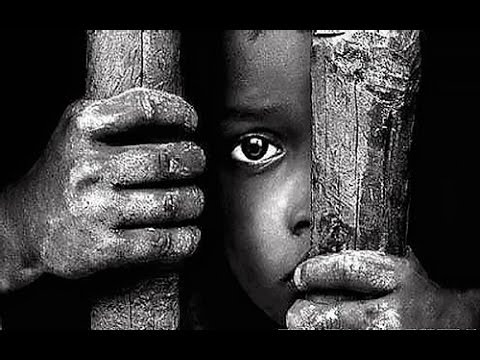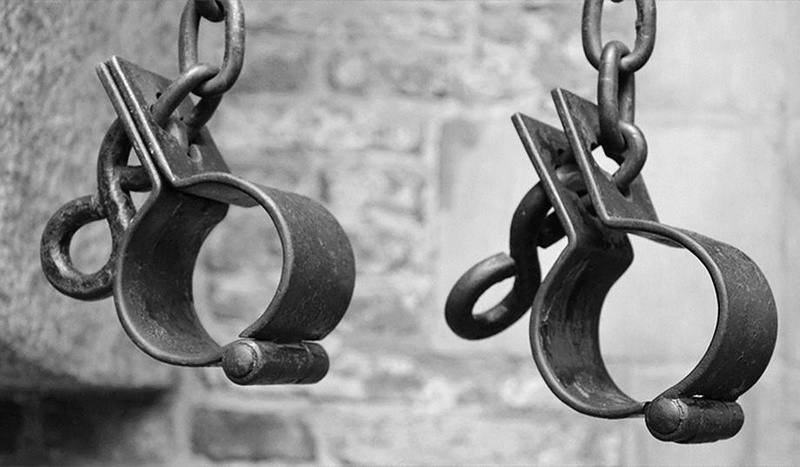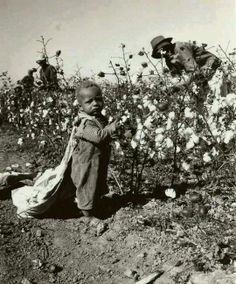
Black Kings of Ancient Slave owning Societies: According to some black African writers they did and some felt ashamed by it.
'In Ghana, politician and educator Samuel Sulemana Fuseini has acknowledged that his Asante ancestors accumulated their great wealth by abducting, capturing, and kidnapping Africans and selling them as slaves. Likewise, Ghanaian diplomat Kofi Awoonor has written: “I believe there is a great psychic shadow over Africa, and it has much to do with our guilt and denial of our role in the slave trade. We too are blameworthy in what was essentially one of the most heinous crimes in human history.”'
'In 2000, at an observance attended by delegates from several European countries and the United States, officials from Benin publicized President Mathieu Kerekou’s apology for his country’s role in “selling fellow Africans by the millions to white slave traders.” “We cry for forgiveness and reconciliation,” said Luc Gnacadja, Benin’s minister of environment and housing. Cyrille Oguin, Benin’s ambassador to the United States, acknowledged, “We share in the responsibility for this terrible human tragedy."'

One African blogger wrote that "the bulk of the supply came from the Nigerians. These Nigerian middlemen moved to the interior where they captured other Nigerians who belonged to other communities. The middlemen also purchased many of the slaves from the people in the interior .
Many Nigerian middlemen began to depend totally on the slave trade and neglected every other business and occupation. The result was that when the trade was abolished [by England in 1807] these Nigerians began to protest. As years went by and the trade collapsed such Nigerians lost their sources of income and became impoverished"
"Senegal’s president Abdoulaye Wade, “himself is the descendant of generations of slave-owning and slave-trading African kings,” urged Europeans, Americans, and Africans to acknowledge publicly and teach openly about their shared responsibility for the Atlantic slave trade"
"Historians estimate that ten million of these abducted Africans “never even made it to the slave ships. Most died on the march to the sea”—still chained, yoked, and shackled by their African captors—before they ever laid eyes on a white slave trader"

Africans were also sold to other Africans in Dahomey for human sacrifices. Africans were also sold to Muslim slave traders for use as eunuchs in the middle east. Most males did not survive the eunuch station and those who did survive left no descendants. The price of slaves was low because slaves could not only walk to the middle east from Africa, they could also carry trade goods on the way there.
The Africans sold to the white men became high priced cargo because of the expensive ocean voyage. This made it profitable to breed slaves. In contrast in the middle east the price of slaves was so low that the children of slave women were regularly killed so that the mothers could get back to work. The black population in the New World owes its existence to capitalism and the white man's need for labor. There were not enough white slaves available to fill the need for plantation labor.
According to David Stannard's American Holocaust, 50% of African deaths occurred in Africa as a result of wars between native kingdoms, which produced the majority of slaves. This includes not only those who died in battles, but also those who died as a result of forced marches from inland areas to slave ports on the various coasts.

The practice of enslaving enemy combatants and their villages was widespread throughout Western and West Central Africa, although wars were rarely started to procure slaves. The slave trade was largely a by-product of tribal and state warfare as a way of removing potential dissidents after victory or financing future wars.
However, some African groups proved particularly adept and brutal at the practice of enslaving others, such as Oyo, Benin, Igala, Kaabu, Asanteman, Dahomey, the Aro Confederacy and the Imbangala war bands. By the end of this process, no fewer than 18.3 million people would be herded into "factories" to await shipment to the New World.
The kings of Dahomey sold their war captives into transatlantic slavery, who otherwise would have been killed in a ceremony known as the Annual Customs. As one of West Africa's principal slave states, Dahomey became extremely unpopular with neighbouring peoples. King Gezo of Dahomey said in the 1840s:

The slave trade is the ruling principle of my people. It is the source and the glory of their wealth…the mother lulls the child to sleep with notes of triumph over an enemy reduced to slavery.
Like the Bambara Empire to the east, the Khasso kingdoms depended heavily on the slave trade for their economy. A family's status was indicated by the number of slaves it owned, leading to wars for the sole purpose of taking more captives. This trade led the Khasso into increasing contact with the European settlements of Africa's west coast, particularly the French.
Benin grew increasingly rich during the 16th and 17th centuries on the slave trade with Europe; slaves from enemy states of the interior were sold, and carried to the Americas in Dutch and Portuguese ships. The Bight of Benin's shore soon came to be known as the "Slave Coast". In 1807, the UK Parliament passed the Bill that abolished the trading of slaves. The King of Bonny (now in Nigeria) was horrified at the conclusion of the practice:
We think this trade must go on. That is the verdict of our oracle and the priests. They say that your country, however great, can never stop a trade ordained by God himself.

The Atlantic slave trade peaked in the late 18th century, when the largest number of slaves were captured on raiding expeditions into the interior of West Africa. Obviously, Europeans did not TAKE Slaves in Africa, they BOUGHT Slaves in Africa. These expeditions were typically carried out by African kingdoms, such as the Oyo empire (Yoruba), Kong Empire, Kingdom of Benin, Kingdom of Fouta Djallon, Kingdom of Fouta Tooro, Kingdom of Koya, Kingdom of Khasso, Kingdom of Kaabu, Fante Confederacy, Ashanti Confederacy, Aro Confederacy and the kingdom of Dahomey.
Europeans rarely entered the interior of Africa, due to fear of disease and moreover fierce African resistance. The slaves were brought to coastal outposts where they were traded for goods.
Denmark was the first European country to ban slavery. In 1807 Britain declared the slave trade to be illegal. One year later the United States of America followed, Sweden in 1813, The Netherlands in 1814, France in 1815 and Spain in 1820.
However the constant demand for slaves in the Caribbean and in the Southern States of America continued. Huge profits could still be made with the slave trade. In the years that followed, dozens of illegal slave transports took place between Africa and those destinations. Britain on an international level made great efforts to stop this illegal trade.

It made agreements with other countries, and British marine ships were authorized to ransack ships leaving Africa. They patrolled along the African coast to stop illegal slave transports. When a slave trader was caught, the ship was confiscated and the captain punished. The punishments England imposed in 1811 was deportation or the death penalty.
But it was not from a humane point of view that England suppressed the slave trade; rather, it was to protect its own sugar colonies against dishonest competition from other countries that could still count on new supplies of cheap slave labor.

The British and French ships patrolling along the African coast also had some unintended consequences; It was not unusual for a slave ship to toss her human cargo into the sea when confronted with a British or French slave hunter. There were also rumors about mass slaughters of slaves onshore along the African coast by African slavers, when British or French ships prevented the slave ships from reaching the shore to pick up their human cargo.
The most important markets for illegal slavers was Cuba and Brazil. From Cuba the African slaves were illegally transported on fast clippers to the southern states of America, often with false documents to prove the slaves originated from other Caribbean colonies and not from Africa. British, American, French and Dutch ships took part in the illegal slave transports that happened until 1870.

At a rough estimation, about 1,898,400 slaves have been transported over the Atlantic Ocean between 1811 and 1870. Sixty per-cent of these slaves wore transported to Brazil, 32 percent to Cuba and Puerto Rico, 5 percent to the French West Indies and only 3 percent straight to the United States, but many slaves were brought to the United States through Cuba.
Reformers campaigned during much of the 19th century for the United Kingdom to use its influence and power to stop the traffic of slaves to Brazil. Besides moral qualms, the low cost of slave-produced Brazilian sugar meant that British colonies in the West Indies were unable to match the market prices of Brazilian sugar, and each Briton was consuming 16 pounds (7 kg) of sugar a year by the 19th century. This combination led to intensive pressure from the British government for Brazil to end this practice, which it did by steps over several decades.
East Africa
Zanzibar was once East Africa's main slave-trading port, and under Omani Arabs in the 19th century as many as 50,000 slaves were passing through the city each year. Some historians estimate that between 11 and 18 million black African slaves crossed the Red Sea, Indian Ocean, and Sahara Desert from 650 AD to 1900 AD, compared with the 9.4 to 12 million Africans who were taken to the Americas.
During the Age of Exploration, the Portuguese Empire was the first European power to gain control of Zanzibar, and the Portuguese kept it for nearly 200 years. In 1698, Zanzibar fell under the control of the Sultanate of Oman, which developed an economy of trade and cash crops with a ruling Arab elite.

The Muslims and slavery
As the Muslims failed to conquer Europe in the 8th century they took to pirate raids against the shores of Spain, southern Portugal and France, and Italy, that would last roughly from the 9th century until the 12th century, when the Italian city-states of Genoa, Venice, and Pisa, along with the Spanish kingdoms of Aragon and Castile, as well as the Sicilian Normans, began to dominate the Mediterranean.
The Barbary Corsairs
The Barbary Corsairs, sometimes called Corsairs or Barbary Pirates, were Muslim pirates and privateers who operated from North Africa from the time of the Crusades (11th century) until the early 19th century. Based in North African ports such as Tunis, Tripoli, Algiers, Salé, and other ports in Morocco, they sailed mainly along the stretch of northern Africa known as the Barbary Coast.

But their predation extended throughout the Mediterranean, south along West Africa's Atlantic seaboard, and into the North Atlantic as far north as Iceland, and they primarily commandeered western European ships in the western Mediterranean Sea. In addition, they engaged in Razzias, raids on European coastal towns to capture Christian slaves to sell at slave markets in places such as Algeria and Morocco.
The Middle Ages from 1100 to 1500 saw a continuation of the European slave trade, as there was a shift from the Western Mediterranean Islamic nations to the Eastern nations, as Venice and Genoa took firm control of the Eastern Mediterranean from the 12th century and the Black Sea from the 13th century sold and both Slavic and Baltic slaves, as well as Georgians, Turks, and other ethnic groups of the Black Sea and Caucasus, to the Muslim nations of the Middle East.

"the Kingdom of Kongo became a major source of slaves for Portuguese traders and other European powers."
"Slavery had existed in Kongo long before the arrival of the Portuguese, and Afonso's (King of Kongo 1456-1542 or 1543) early letters show the evidence of slave markets. They also show the purchase and sale of slaves within the country and his accounts on capturing slaves in war which were given and sold to Portuguese merchants. It is likely that most of the slaves exported to the Portuguese were war captives from Kongo's campaigns of expansion. In addition, the slaving wars helped Afonso consolidate his power in southern and eastern border regions."

"The rulers of these societies usually appointed caboceers (traders) to deal with European slave traders. Many, such as the caboceer from the Fante people, John Currantee, or the leader from the Efik people Ephraim Robin John (known to the European traders as King George) were well-known as canny and ruthless dealers.
They were able to communicate in a number of European and African languages. The African slave traders were skilled in using to their advantage the rivalries between the French, the English and the Dutch to get the best prices for their slaves. Often they demanded (and received) ‘gifts’ or ‘custom fees’, known in some quarters as ‘dashee’, from the Europeans."
 Plantations were developed to grow spices, hence the term Spice Islands. Another major trade good for Zanzibar was ivory. The Sultan of Zanzibar controlled a substantial portion of the East African coast, known as Zanj; this included Mombasa, Dar es Salaam, and trading routes that extended much further inland, such as the route leading to Kindu on the Congo River.
Plantations were developed to grow spices, hence the term Spice Islands. Another major trade good for Zanzibar was ivory. The Sultan of Zanzibar controlled a substantial portion of the East African coast, known as Zanj; this included Mombasa, Dar es Salaam, and trading routes that extended much further inland, such as the route leading to Kindu on the Congo River.Sometimes gradually and sometimes by fits and starts, control of Zanzibar came into the hands of the British Empire; part of the political impetus for this was the 19th century movement for the abolition of the slave trade.


The relationship between Britain and the nearest relevant colonial power, Germany, was formalized by the 1890 Heligoland-Zanzibar Treaty, in which Germany pledged not to interfere with British interests in insular Zanzibar. That year, Zanzibar became a protectorate (not a colony) of Britain. From 1890 to 1913, traditional viziers were appointed to govern as puppets, switching to a system of British residents (effectively governors) from 1913 to 1963.

First, foreign slave trade was banned in 1850. Then, in 1871, the sons of the slaves were freed. In 1885, slaves aged over 60 years were freed. The Paraguayan War contributed to ending slavery, since many slaves enlisted in exchange for freedom.
However, in 2004, the government acknowledged to the United Nations that at least 25,000 Brazilians work under conditions "analogous to slavery." The top anti-slavery official puts the number of modern slaves at 50,000. More than 1,000 slave laborers were freed from a sugar cane plantation in 2007 by the Brazilian government, making it the largest anti-slavery raid in modern
times in Brazil.

Ambassador Cyrille Oguin of Benin said:
Benin President Mattieu Kerekou has made reconciliation a priority, Oguin says. "The president of Benin, the people of Benin have asked me to come here and apologize for the government, for the Benin people and for Africa for what we all know happened," Oguin says. "Where our parents were involved in this awful, this terrible, trade."
Eventually Africans paid for their stupidity in selling their own kind into brutal Slavery:
Most of the continent was colonized eventually they regained freedom.
As the saying goes when you digging a ditch dig two. One for the person you are digging it for the other one for yourself.


